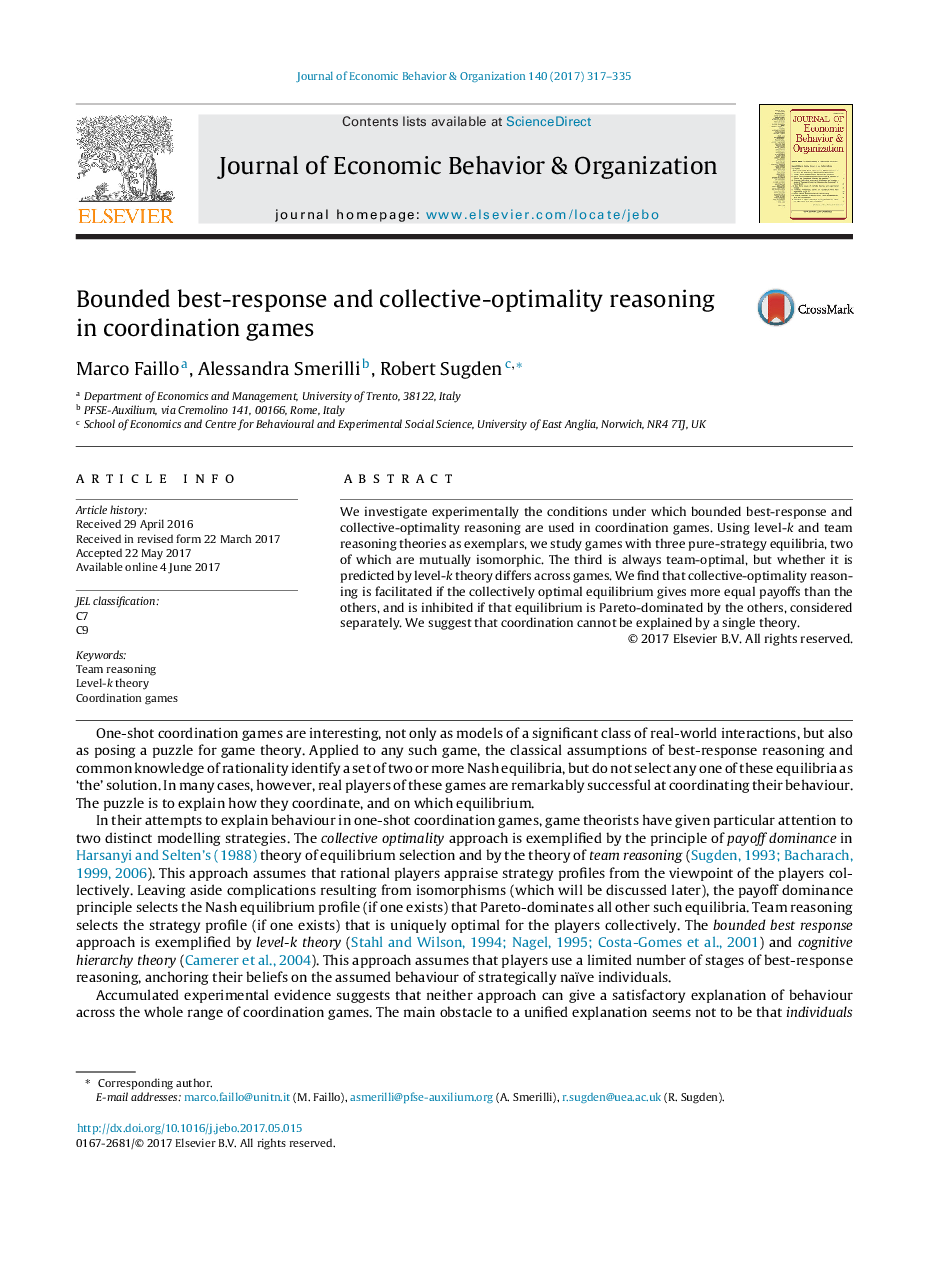| Article ID | Journal | Published Year | Pages | File Type |
|---|---|---|---|---|
| 5034443 | Journal of Economic Behavior & Organization | 2017 | 19 Pages |
â¢We investigate experimentally the modes of reasoning used in coordination games.â¢We investigate the conditions under which level-k and team reasoning are used.â¢We find that both modes of reasoning are used, depending on properties of the games.â¢We suggest that coordination cannot be explained by a single theory.
We investigate experimentally the conditions under which bounded best-response and collective-optimality reasoning are used in coordination games. Using level-k and team reasoning theories as exemplars, we study games with three pure-strategy equilibria, two of which are mutually isomorphic. The third is always team-optimal, but whether it is predicted by level-k theory differs across games. We find that collective-optimality reasoning is facilitated if the collectively optimal equilibrium gives more equal payoffs than the others, and is inhibited if that equilibrium is Pareto-dominated by the others, considered separately. We suggest that coordination cannot be explained by a single theory.
